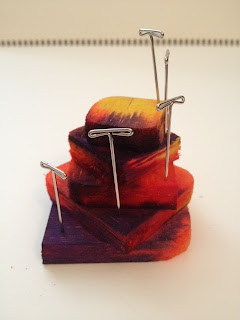"Tokens", is about the London Foundling Hospital which was established in 1741 for illegitimate and unwanted children. Within in this documentation it talks about the "tokens" that were left with the children in the event that the mothers ever wanted to reclaim the children. Many of these tokens were halves of actual tokens that could be matched up in the future. Most mothers never came back for the children.
I found this reading very emotional and melancholy. These children purposely left and abandoned by their mothers, mot never to return or even see if the child survived. I felt grief and anger for these children having to grow up without parents and knowing that they were purposely given up, unwanted, how horrible would that be? How dreadful would that feel? It seems inhuman, unfathomable, especially when they had a lottery system introduced where those bringing children picked a colored ball to see if they won the prize of being able to give their child away to the hospital, and all the while the wealthy society ladies and their husbands, who funded the institution, watched. How could you watch people gamble away their children, especially when the winners were those who gave the children away and the losers were those who had to keep them? I found this disturbing and sad.
The tokens that the mothers left were, while sad, also intriguing. The items were sometimes strange like the ivory gambling token in the shape of a fish or the crushed thimble, others had more obvious meaning such as the tiny ring with the heart-shaped stone with the inscription that translates to: "He who neglects me loses me." Many of the items I was wanted to know why that item was chosen, what did it mean to the mother? What was its significance? I wanted to know the story of the tokens that now seem just as abandoned and forgotten as the children that once went with them. These small mementos once had meaning and significance, they once were important in some way. It makes you want to know about them, about the significance tied to them and the story that they obviously once had. I want to know about them, I want to know so badly, its difficult holding or seeing something that was once important to someone and not being able to know that importance, the curiosity eats at me, like a hunger that can never be sated.













































